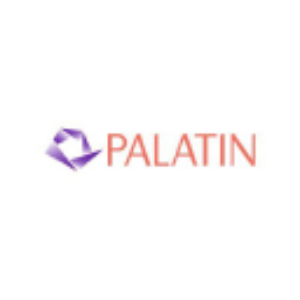Welcome to our dedicated page for Palatin Tech news (Ticker: PTN), a resource for investors and traders seeking the latest updates and insights on Palatin Tech stock.
Palatin Technologies, Inc. (PTN) is a biopharmaceutical innovator developing receptor-specific therapies for conditions with high unmet medical needs, including obesity, inflammatory diseases, and ocular disorders. This page provides investors and industry professionals with timely updates on the company’s clinical progress, regulatory milestones, and strategic initiatives.
Access comprehensive coverage of Palatin’s press releases and news articles, including updates on melanocortin receptor-targeted drug development, clinical trial results, and partnership announcements. Our curated repository ensures you stay informed about key developments in the company’s pipeline, such as PL8177 for ulcerative colitis and MC4R agonist programs for metabolic disorders.
Content spans regulatory filings, research collaborations, patent updates, and analysis of scientific presentations. Bookmark this page for streamlined access to verified information about Palatin’s advancements in peptide therapeutics and receptor modulation strategies. Check back regularly for objective reporting on how the company addresses complex medical challenges through precision drug development.
Palatin Technologies presented promising data on its Phase 3 clinical trial for PL9643, a treatment for dry eye disease (DED), at the ARVO Annual Conference. The data shows consistent efficacy across multiple signs and symptoms of DED, demonstrating PL9643's potential as a leading treatment option. The ongoing MELODY-1 clinical study aims to finalize data in the second half of 2023, highlighting the significant differences in effectiveness compared to existing therapies. Notably, PL9643 showed no ocular adverse events, illustrating its strong safety and tolerability profile. The findings reinforce PL9643's potential to address unmet needs in DED patients, with over 20 million affected in the U.S.
Palatin Technologies (NYSE American: PTN) presented a poster at the ARVO Annual Conference showcasing their research on PL9588, a novel treatment aimed at reducing intraocular pressure (IOP) for glaucoma patients. The study demonstrated that PL9588 effectively lowered IOP in normotensive rabbits, showcasing effects comparable to established treatments like latanoprost and timolol. The results indicate that the treatment could persist for 24 hours and may offer neuroprotective benefits. The global glaucoma market, valued at $5.71 billion in 2021, is expected to reach $9.77 billion by 2030, signaling significant potential for new treatments. Palatin plans to advance PL9588 into clinical development, subject to resources. This innovative approach may significantly improve patient outcomes and enhance treatment options for glaucoma.

